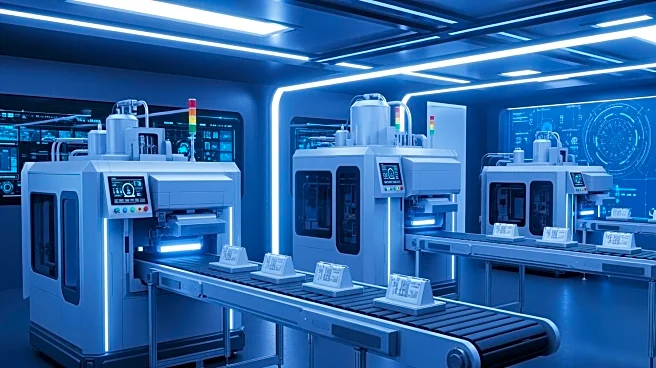What's Happening?
Finnish startup Solar Foods has announced that it has secured memos of understanding (MOUs) and letters of intent (LOIs) for more than half of the output from its planned commercial-scale food production
facility. This facility will produce protein from 'thin air' using gas fermentation. Solar Foods is expanding its pilot facility, Factory 01, from 160 tons per year to 230 tons per year. The large-scale facility, Factory 02, is set to begin operations in 2028 with an initial phase capable of producing 3,200 tons per year. The company plans to collaborate with strategic partners for real estate, hydrogen production, electricity grids, and cooling and heating capacity. The construction of Factory 02 will occur in three phases, with the first phase requiring €134 million ($155 million), of which strategic partners will contribute €95 million ($110 million).
Why It's Important?
The development of Solar Foods' Factory 02 represents a significant advancement in sustainable protein production. By utilizing gas fermentation, the company aims to offer a cost-efficient and environmentally friendly alternative to traditional protein sources. This method could reduce reliance on sugar fermentation and lower greenhouse gas emissions. The agreements secured for more than half of the factory's output indicate strong market interest and potential demand for this innovative protein source. As the global demand for protein continues to rise, Solar Foods' approach could play a crucial role in addressing food security and sustainability challenges.
What's Next?
Solar Foods plans to proceed with the pre-engineering and implementation of Factory 02, leveraging its network of strategic partners. The company aims to complete the first phase of construction by 2028, with subsequent phases potentially increasing production capacity to 12,800 tons per year. As the facility becomes operational, Solar Foods will focus on marketing its protein product, Solein, as an alternative to whey protein. The company will target markets interested in securing a consistent supply of protein and reducing emissions. The success of this venture could influence other novel protein players and drive further investment in sustainable food technologies.
Beyond the Headlines
The use of gas fermentation for protein production could have broader implications for the food industry, potentially leading to shifts in supply chain dynamics and consumer preferences. As Solar Foods and similar companies advance their technologies, there may be increased scrutiny on the environmental impact and ethical considerations of traditional meat production. This could prompt regulatory changes and encourage more investment in alternative protein sources. Additionally, the success of Solar Foods could inspire further innovation in biomanufacturing and sustainability-focused food technologies.










